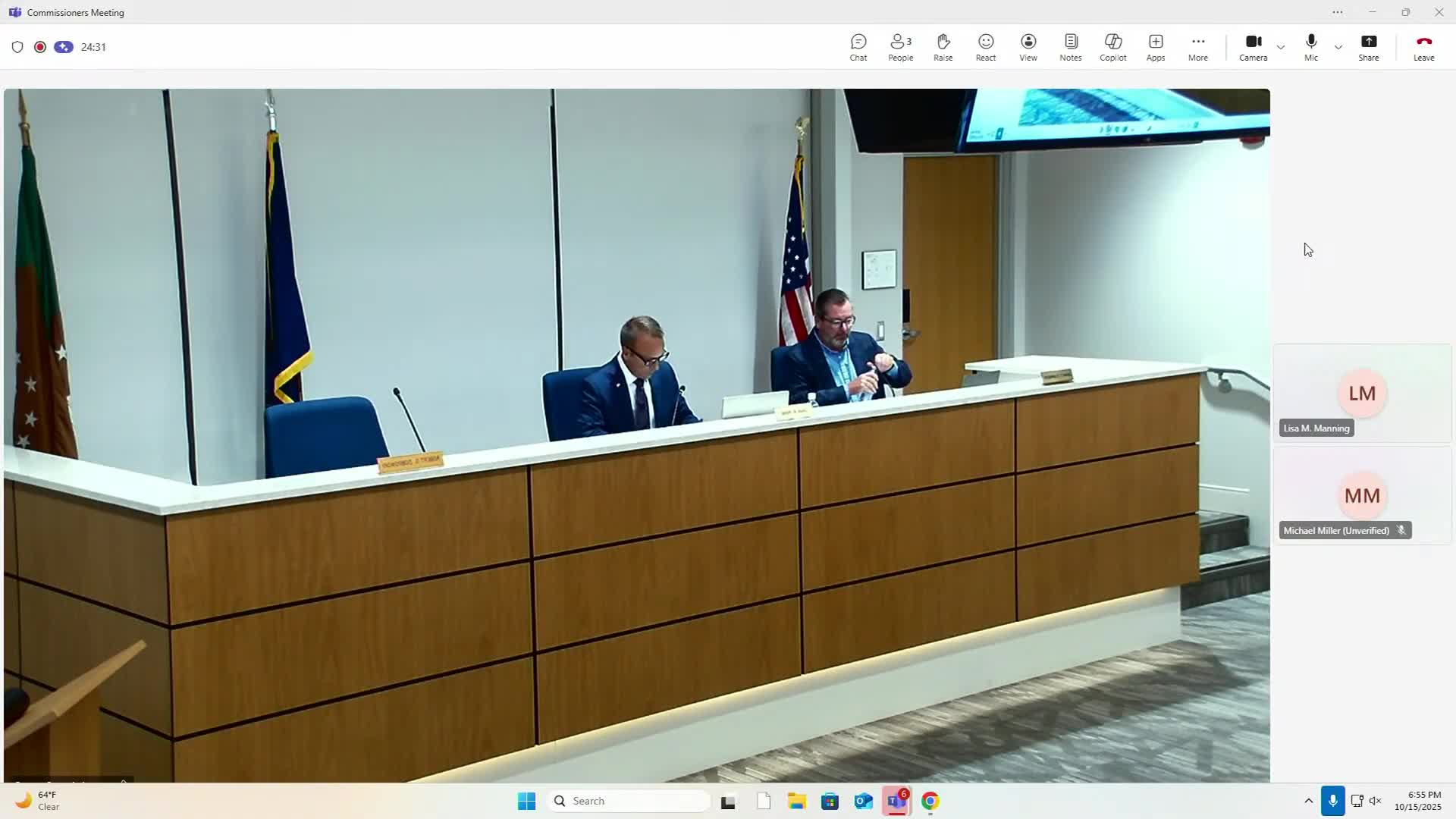Franklin County jail short-staffed as leaders outline temporary measures and contract talks
Get AI-powered insights, summaries, and transcripts
Subscribe
Summary
Warden and human-resources staff told commissioners that the jail currently lists 52 full-time correctional officers against a roster capacity of 96 and that the county is exploring temporary rehousing of inmates and schedule changes amid stalled mid-contract negotiations with the union.
Franklin County officials told the county commissioners Oct. 15 that the county jail is operating with roughly half its authorized corrections staff and that temporary measures and ongoing labor talks are underway to reduce safety risks.
Warden Warren Franzoni said the jail currently has 52 full‑time correctional officers and two part‑time officers on the roster, while the facility’s staffing model allows for 96 full‑time positions. Franzoni said additional hires are in onboarding and that two more full‑time officers were scheduled to start the following week, but he described the shortfall as putting sustained strain on remaining staff and operations.
Human-resources director Tiffany Blurier told the commissioners the county has conducted more than 500 interviews since January 2022 and hired about 140 people during that period, but the jail remains short because turnover is high. Blurier said exit interviews point repeatedly to unpredictable schedules and lack of weekend certainty as top reasons employees leave; she said pay alone did not fully explain departures.
As a temporary operational measure, Franzoni said administration is reviewing a select group of inmates for temporary housing in neighboring counties, an approach that could eliminate one post per shift (three posts per day) to ease pressure on the schedule. He said rehousing decisions would be targeted and surgical to preserve safety.
The county described recent mid‑contract negotiations with the corrections union, mediated over multiple days, as unsuccessful after the union declined to present the county’s final offer to its membership for a vote. County negotiators had proposed a move to a Pittman fixed 12‑hour schedule intended to give employees predictable time off (the county said it would increase average days off from 104 to about 182 per year) and a one‑time, roughly 8% wage adjustment the county described as the maximum sustainable raise; the county estimated its proposal’s cost at about $1.2 million while characterizing the union’s last proposal as an unsustainable $2.4 million impact.
Union and staff speakers at the meeting said the situation amounts to an emergency for safety and staffing. The American Federation of State, County and Municipal Employees (AFSCME) and local correctional officers urged faster academy training, retention bonuses and additional wage increases. The union’s staff representative presented three proposals: requiring academy training for new hires within two months of hire; a $2,000 retention bonus for officers hired since Jan. 1, 2025 (with partial repayment if the officer leaves within 36 months); and a $2 hourly increase at the start of both 2026 and 2027 in addition to scheduled contract increases.
Correctional officers who spoke during public comment described long mandated overtime, burnout, safety incidents and morale problems. Officers and union speakers said vacancy rates are above 50 percent, that many newer hires are still in field training and that understaffing increases the risk of assaults and delayed responses.
Commissioners did not take formal action at the meeting beyond receiving the briefing; administrators asked for time to continue negotiations and operational planning. Warden Franzoni said the county will continue hiring, hold regular interviews and review inmate‑rehousing options while negotiations remain paused.
